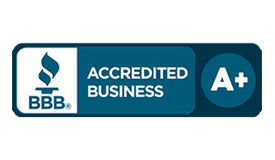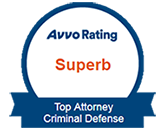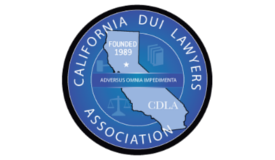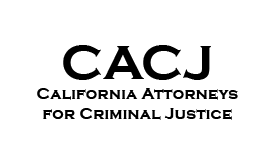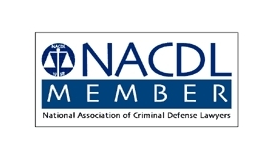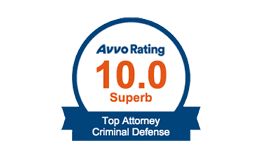Have a lawyer evaluate your juvenile criminal matter.
Child or minor arrested for a crime in Silicon Valley or the Peninsula?
Every parent worries about their child getting into trouble with the law. Such concerns are not ill-founded. A juvenile delinquency case – whether in San Jose or elsewhere in the Bay Area – can significantly alter your child’s future and affect your entire family.
Please keep in mind that if your child is arrested on any type of criminal charge, it is not a “misunderstanding” that you can clear up by talking to the police yourself. In some cases, a child as young as 14 can be tried as an adult. That is why you need to speak with an experienced San Jose juvenile crimes attorney so that we can evaluate your case and determine the best course of action.
What Cases Are Tried in Juvenile Court?
Every California Superior Court has a Juvenile Division. This Division hears two types of cases:
- Dependency hearings, which deal with parent-child relationships; and
- Delinquency hearings, which adjudicate criminal charges against people under the age of 18.
Section 602 of the California Welfare & Institutions Code is the CA law in San Jose and San Mateo which establishes the juvenile court’s jurisdiction over delinquency hearings. That is why such cases are sometimes referred to as “602 proceedings.” But there are other offenses that can be tried in adult court under Section 707(b) if the child is between the ages of 14 and 18. These Section 707(b) offenses include:
- Murder or attempted murder;
- Arson that causes “great bodily injury” to a person or burns an “inhabited structure or inhabited property”;
- Robbery;
- Forcible rape;
- Rape, sodomy, or oral copulation that involves “force, violence, or threat of great bodily harm”;
- Carjacking, kidnapping for ransom or “purposes of robbery”, or kidnapping that involves “bodily harm”;
- Discharging a firearm in an “inhabited or occupied building”; and
- Manufacturing, compounding, or selling at least one-half ounce of a “salt or solution of a controlled substance.”
If the accused minor is at least 16, the prosecution has the right to “direct file” a Section 707(b) charge in adult court. When the minor is 14 or 15, the prosecutor may only direct file in certain specified circumstances, such as when the minor is accused of an offense where an adult could be punished by death or life in prison, or where the minor is accused of personally using a firearm to commit a felony. In most other cases, the prosecutor can ask for a “fitness hearing,” where a Juvenile Court judge decides if the minor should be tried in adult court.
How Does the CA Juvenile Court Process Work?
If your child is arrested, that does not necessarily mean that he or she will enter the CA juvenile court system. For minor infractions, the arresting officer has the discretion to release your child with nothing more than a reprimand. In more serious cases, the police will turn your child over to your county’s Probation Department, i.e. take the child to juvenile hall. It is important to get an attorney involved early in the process to fight against unnecessary detention reserved for those who are deemed a danger to society.
Early in the process, a prosecutor may file a “petition” against your child, which is similar to a criminal complaint in adult court. Around the same time, the Probation Department may interview your child and make a recommendation to the court. Your child may then face a series of preliminary hearings, including a detention hearing (if he or she is in custody), an arraignment, a fitness hearing (if there is a Section 707(b) charge). There will be then be a jurisdiction hearing (trial) and, if necessary, a disposition hearing for sentencing.
My Child Was Arrested in San Jose. What Kind of Punishment Could He Face?
The purpose of the juvenile justice system is rehabilitation rather than punishment. For this reason, there are a number of sentencing options that allow most delinquents to avoid formal commitment to a California Youth Authority (CYA) facility. For instance, many non-violent first-time offenders receive “informal probation” or “diversion.”
With diversion, no petition is filed against your child. Instead, a probation officer requires your child to meet certain conditions for a period of no more than six months. These conditions typically include mandatory counseling and education. Assuming your child fulfills all of the conditions, his or her case will end without any formal charges.
Informal probation, in contrast, occurs after a petition has already been filed. But the petition itself is put on hold–i.e., not formally adjudicated–so as to afford your child an opportunity for rehabilitation without having to admit guilt. As with diversion, your child will need to meet certain conditions. In addition, you may also be required to attend mandatory counseling along with your child.
Two other options available in more serious cases are a deferred entry of judgment (DEJ) and formal probation. A DEJ is typically used when a child is charged for the first time with a felony (except those subject to Section 707(b)). Unlike informal probation and diversion, your child is required to admit guilt as a condition of receiving a DEJ. However, if he or she completes the DEJ program–which can last up to 3 years–the charges will eventually be dismissed.
With formal probation, your child is declared a “ward of the court.” That does not necessarily mean that you will lose day-to-day custody of your child. The judge will determine the most “suitable placement” for your child to serve probation, which may be your home, a group home, or possibly a “probation camp.”
CYA facilities are reserved for minors convicted of a Section 707(b) crime or an offense that requires them to register as a sex offender.
Does Your Child Need a Juvenile Criminal Attorney?
A juvenile record does not go away once your child turns 18 or even 21. Depending on the offense, a juvenile conviction may count towards California’s “Three Strikes” law in a future adult criminal case. And a finding of guilty in a juvenile sex crimes case may require your child to register as a sex offender even as an adult.
A qualified San Mateo and Santa Clara juvenile crimes defense lawyer can make sure the system treats your child fairly. In many cases simply having a lawyer can expedite the resolution of your child’s case without the need for an extended judicial process. Remember, your child has the same constitutional rights as any other California resident accused of a crime. You should never hesitate to make sure they have skilled representation advising and assisting every step of the way.
At the Law Office of James Dunn, we have the experience and commitment to defending juveniles accused of crimes, no matter how minor. Call us today and let us know how we can help your family.

Half the Cost, Twice the Work
Jim Dunn fixed my previous lawyers blunders, literally cost half as much, didn’t charge me until my case was settled. He got me the best possible outcome after miscommunications with the courts, mostly my previous lawyer was to blame. There were countless little things that Jim did that won’t get named here, but he visited me in Jail on a Sunday evening, he fixed the miswriting of the court scribe, a last minute catch on Jim’s part, my case was first, his pay was second. I like him, he is personable, he called to check on me, I could call him and actually reach him, not go through a secretary and hope to be reached in the same day like my last lawyer. I would definitely hire him again and even form a partnership to become the family lawyer. If you have a run in with with law, you want Jim Dunn on your side, he only tells you the truth, and genuinely wants to help you!
Reviewer: Charlie M. — September 4, 2015 – San Mateo, CA




